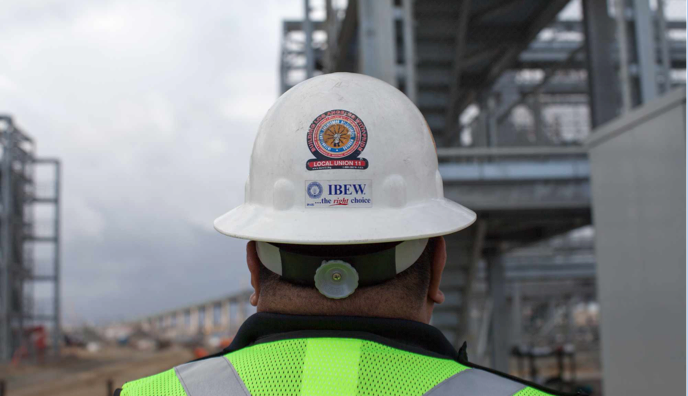CommentsLA WATCHDOG--Pension and postretirement benefits have slammed the finances of IBEW Local 18, the union that represents more than 90% of the employees of our Department of Water and Power. Over the last five years, the liability for postretirement benefit obligations has tripled, increasing by $4 million to $5.9 million. At the same time, the net worth of Local 18 has taken a 70% hit, declining by almost $5 million, from $7.1 million to only $2.2 million.
While dues from members has grown by $1.4 million (17%) to almost $10 million (1.25% of salaries) since 2011, increased costs for pensions and postretirement benefits have contributed to annual losses, including a ding of $1.6 million in 2016.
All this makes for a very nice pension plan for IBEW Union Bo$$ d’Arcy, the Local 18’s long time business manager. But if you talk to his members, they are not complaining about his generous compensation or his rich retirement package. To the contrary, they believe he has earned every cent given what he has accomplished for his more than 8,000 members who enjoy above average wages and benefits.
Over the years, the IBEW Labor Premium has been estimated to be in the range of $200 to $250 million. This does not include the impact of overly restrictive work rules and burdensome staffing requirements.
The key to Union Bo$$ d’Arcy’s success is that he has enjoyed the support of many members of the City Council who have benefitted from his generous campaign contributions. He has also intimidated those who would dare to oppose his contract demands. Just ask Bernard Parks who barely beat an incompetent opponent who was bankrolled by the IBEW in 2011.
The undue influence of Union Bo$$ d’Arcy is why we must insist on an open and transparent discussion of the ongoing labor negotiations between DWP and the IBEW. While personnel costs now exceed $1.5 billion, there are many other issues besides wages, healthcare benefits, and pensions that need to be addressed. These include overtime, outsourcing, work rules, staffing levels, benchmarking of operations, training (especially after the recent audit of Controller Ron Galperin), and the Joint Training and Safety Institutes.
As suggested by the Los Angeles Times, there needs to be public hearings that lay out the expectations and goals of the Department and the City and their impact on Ratepayers. These hearings should also disclose the status of the current negotiations as the existing contract expires on September 30.
We should also be informed on a timely basis (say 24 hours) of any offers and counter offers made by either party during the negotiations.
The cost of all offers or proposals should be analyzed by a qualified independent third party who, unlike the City Administrative Officer and the Chief Legislative Analyst, is free from political pressure.
All communications between the participants and their staffs must also be disclosed on a timely basis.
Finally, there must be adequate time for a “full and public analysis” of the contract before it is placed on the agenda of the City Council.
In the past, we have been presented with a “done deal” that is automatically approved by the City Council and Mayor without any real input from Ratepayers who are paying the bill. In this era of political upheaval and uncertainty, now is the time for our Elected Elite to endorse reform and implement an open and transparent process in labor negotiations that will help restore our trust and confidence in City Hall and the Department of Water and Power.
A little sunshine never hurt anyone.
(Jack Humphreville writes LA Watchdog for CityWatch. He is the President of the DWP Advocacy Committee and is the Budget and DWP representative for the Greater Wilshire Neighborhood Council. He is a Neighborhood Council Budget Advocate. Jack is affiliated with Recycler Classifieds -- www.recycler.com. He can be reached at: [email protected].)
-cw
Sidebar
Our mission is to promote and facilitate civic engagement and neighborhood empowerment, and to hold area government and its politicians accountable.

 CityWatch Los Angeles
Politics. Perspective. Participation.
CityWatch Los Angeles
Politics. Perspective. Participation.
19
Thu, Feb















